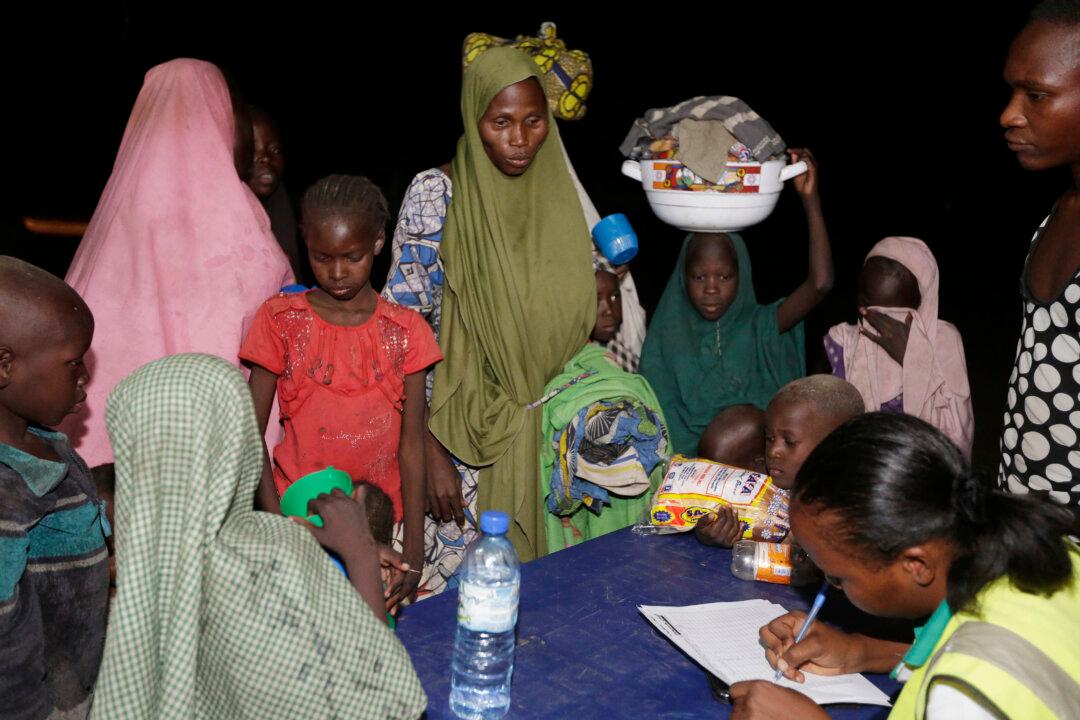BAUCHI, Nigeria— Three women wearing explosive vests blew up near Maiduguri in an apparent failed suicide bombing attack on Nigeria’s beleaguered northeastern city, police said Wednesday.
Dozens of people have been killed in suicide bombings in Maiduguri last week, all blamed on the extremist Boko Haram group.
A police bomb expert investigating Tuesday’s blasts said the women’s bodies were cut in half by the explosions, which took place on the highway leading to the city. He spoke on condition of anonymity because he is not supposed to give information to reporters.
The expert said most bombs strapped to girls and women are triggered by remote devices, which they have no control over.
Boko Haram has kidnapped hundreds of girls and women in a nearly 6-year-old uprising aimed at enforcing the group’s strict version of Shariah law across Nigeria, whose population of 170 million is divided almost equally between Christians and Muslims.
Police commissioner John Opadokun confirmed Wednesday that the three women bombers died near Auno village, 15 kilometers (nine miles) from Maiduguri. He said they intended to attack the city.
The bomb expert said three other women died last week when their explosive vests detonated as they were approached by soldiers while boarding a bus near the Maimalari Barracks, on the outskirts of Maiduguri. Several soldiers were injured, he said.
Eight soldiers were killed on June 4 when a suicide car bomb hit a checkpoint outside the same barracks. Other suicide bombs have exploded outside a mosque and in markets in Maiduguri, the biggest city in northeast Nigeria and the birthplace of Boko Haram.
The surge in attacks began after President Muhammadu Buhari ordered the military command center for the war on Boko Haram to be moved from Abuja, the capital in central Nigeria, to Maiduguri, at the heart of the insurgency.
Buhari was meeting Thursday in Abuja with leaders of neighboring countries about strengthening a multinational regional force fighting Boko Haram.
---
Associated Press writer Michelle Faul contributed to this report from Lagos, Nigeria.





